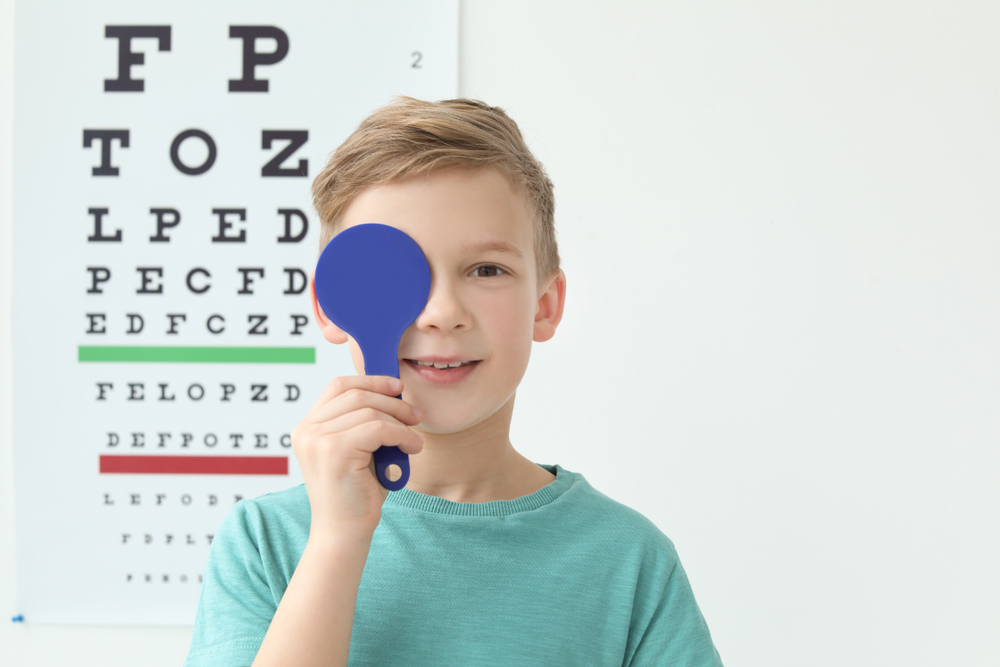
Myopia, also known as nearsightedness, is a common vision problem that affects many children. It occurs when the eye is unable to focus light properly, resulting in blurred distance vision. While myopia can develop at any age, it often starts during childhood and tends to progress as the child grows. Understanding the causes and symptoms of myopia in kids is crucial for effective management.
What Are the Causes and Symptoms of Myopia?
There are several factors that contribute to the development of myopia in children. Genetics play a significant role, as children with myopic parents are more likely to develop myopia themselves. Environmental factors such as excessive near work, lack of outdoor activities, and prolonged screen time can also increase the risk of myopia.
The symptoms of myopia in kids may vary, but common signs include squinting, frequent headaches, eye strain, and difficulty seeing distant objects clearly. If you notice any of these signs in your child, it is important to schedule an appointment with an optometrist for a comprehensive eye examination.
The Importance of Myopia Management
Managing myopia in kids is crucial to prevent the condition from worsening over time. Untreated myopia can lead to potential complications such as retinal detachment, cataracts, and glaucoma in later stages of life. By implementing effective myopia management strategies, parents can help their children maintain good vision and reduce the risk of these complications.
One of the key aspects of myopia management is lifestyle changes. Encouraging kids to spend more time outdoors and engage in activities that require focusing on distant objects can help slow down the progression of myopia. Limiting screen time and promoting a balanced visual environment are also important in preventing myopia from worsening. Creating healthy habits early on can have a significant impact on your child's vision health.
Exploring Myopia Management Strategies
Atropine eye drops have become increasingly popular in the management of myopia in kids. These drops work by dilating the pupil and relaxing the eye muscles, allowing the eye to focus more easily. Studies have shown that atropine eye drops can effectively slow down the progression of myopia in children.
MiSight contact lenses are another effective option for myopia management. These soft contact lenses are specifically designed to correct myopia while also slowing down its progression. MiSight lenses incorporate a unique peripheral defocus design, which helps to redirect the focusing of light and reduce the strain on the eyes. These lenses are typically worn during the day and removed at night.
The Role of Regular Eye Exams in Myopia Management
Regular eye exams play a crucial role in managing myopia in kids. These comprehensive examinations enable optometrists to assess the child's vision and detect any changes or progression of myopia. During the exam, your eye doctor will measure the child's refractive error, evaluate the overall health of the eyes, and discuss appropriate myopia management strategies. It is recommended to schedule eye exams at least once a year or as advised by your eye care professional.
In addition to monitoring myopia progression, regular eye exams can also detect other vision problems or eye conditions that may require intervention. Early detection and treatment of these conditions can prevent further complications and ensure optimal vision health for your child.
Schedule Your Child’s Eye Exam with Prism Eye Center Today
Managing myopia in kids is a multifaceted approach that involves understanding the condition, implementing lifestyle changes, and exploring appropriate myopia management strategies. By being proactive and seeking the guidance of an optometrist, parents can help their children maintain clear vision and reduce the risk of myopia progression.
Schedule an eye exam for your child to ensure their eye health and start managing myopia effectively, visit Prism Eye Center at our office in Post Falls, Idaho. Please call (208) 203-7616 to book an appointment today.








